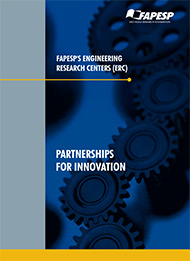Center for Plant Molecular Breeding (CPMB)

Goal: Development of genetic resources to increase agricultural production
Coordinator: Anete Pereira de Souza
Host Institution: Center for Molecular Biology and Genetic Engineering, State University of Campinas (CBMEG-UNICAMP)
Business partner: Brazilian Agricultural Research Corporation (EMBRAPA)
+55 11 3521-1132
anete@unicamp.br
FAPESP Process 2022/04006-2
Term: Dec 2022 to nov 2032
CPMB is a partnership involving UNICAMP, EMBRAPA, the Agronomic Institute (IAC) and the Federal University of São Carlos (UFSCar/RIDESA), in collaboration with four other national institutions. It has 61 researchers from a Brazilian company, seven local institutions and 11 foreign institutions. It aims to revolutionize the study of complex genomes, creating the foundations for a profound transformation in agricultural varieties of global relevance.
Its multidisciplinary team develops and advances innovative, state-of-the-art methods and best practices to sustainably maximize genetic gains in sugarcane (Saccharum spp.) and forage grasses used in pastures (Urochloa spp., M. maximus and Paspalum spp.).
The genetic improvement of these species is an enormous challenge and requires investment in cutting-edge research due to their polyploidy and heterozygous nature. Sugarcane is the main candidate crop for the production of bioenergy and biomaterials, while tropical forage grasses are the basis for livestock feed and subsequently for the production of beef and milk. Sugarcane and forage grasses occupy the first and second positions among the activities that contribute most to agribusiness revenue in São Paulo State.
In addition to creating new approaches to improve agricultural production in the São Paulo State and throughout Brazil, CPMB aims to offer its expertise to other regions with similar environmental conditions around the world, extending Brazil's influence on international research.
With long-term financial support, CPMB will significantly advance complex genome research and breeding of target species, creating a unique position in low-input agricultural systems, and promoting food and nutritional security in a more sustainable way.
RESEARCH AREAS
1. Molecular Omics
2. High-Throughput Phenotyping
3. Modeling
4. Data Science
BV-FAPESP:
https://bv.fapesp.br/en/auxilios/111707



